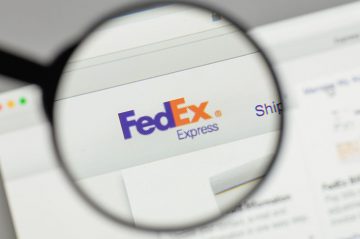Domain/Company Name Conflict Email Scam & What It Wants

Email scams continue to evolve in sophistication, and one that has gained attention is the Domain/Company Name Conflict email scam. This phishing attempt typically targets business owners and professionals, presenting itself as an official notice about a domain registration conflict. The scam not only preys on the fear of losing brand identity but also aims to extract sensitive information and financial details from unsuspecting recipients. Here's how this scam operates and what you can do to protect yourself.
Table of Contents
What Is the Domain/Company Name Conflict Email Scam?
The Domain/Company Name Conflict email scam is a phishing attempt in which scammers impersonate representatives from domain registration companies, often posing as organizations based in China. The email is framed as an urgent notification, claiming that a company (usually a fictitious one) is attempting to register domain names or keywords that conflict with the recipient's business name or trademark.
In these messages, the sender may claim to represent a company like "NET Registry," with a supposed manager—commonly "Peter Liu"—reaching out to alert the recipient of a pending domain registration that could infringe on their brand identity. The scammers provide a sense of urgency, asking recipients to confirm if the third party (typically a company named "Hongpai Ltd") is authorized to register these domains or act as a distributor for their business in China.
Here's what the phishing email says:
(It's very urgent, therefore we kindly ask you to forward this email to your CEO. If you believe this has been sent to you in error, please ignore it. Thanks)
Dear CEO,
This is a formal email. We are the Domain Registration Service company in Shanghai, China. Here I have something to confirm with you. We received an application from Hongpai Ltd on September 16, 2024. They want to request "XXXXXXX" as their internet keyword and China (CN) domain names (XXXXXXX.cn, XXXXXXX.com.cn, XXXXXXX.net.cn, XXXXXXX.org.cn). But after checking it, we find this name conflict with your company name or trademark. In order to deal with this matter better, it's necessary to send email to you and confirm whether this company is your distributor in China?Best regards
Peter LiuGeneral Manager
NET Registry
Tel: +86-2161918696 | Fax: +86-2161918697 | Mob: +86-13816428671
12F Kaike Building, No. 1801 Hongmei Road, Shanghai 200233, China
How Does the Scam Operate?
The scam email usually follows a consistent pattern. It informs the recipient that another company, often a Chinese entity, is trying to register multiple domain names using the recipient's business name. The email's tone is designed to evoke alarm and urgency, encouraging the recipient to take immediate action by replying or clicking on a link.
Once the recipient engages, the scammers may escalate the situation, requesting sensitive information such as credit card numbers, login credentials, or personal identification. In some cases, they may attempt to charge the victim for "domain protection" services or trick them into visiting a malicious website. These websites are crafted to look legitimate but are designed to steal personal or financial information.
What Do Scammers Want?
The primary goal of the Domain/Company Name Conflict scam is to steal sensitive information. By creating a fake scenario where a recipient's business is seemingly at risk, scammers attempt to manipulate victims into providing credit card details, passwords, or other private information. These scams are not about actual domain registrations but are instead phishing schemes designed to defraud individuals and businesses.
In more advanced versions of the scam, the recipient is asked to pay for unnecessary services, such as securing the supposed conflicting domain names or preventing the other party from registering them. Additionally, clicking on links in these emails can redirect users to phishing websites, which either trick them into providing sensitive data or automatically download harmful software.
Common Characteristics of the Scam
This type of phishing email tends to share several common features, which can help recipients identify the threat before falling victim:
- Urgency and Fear: The email is crafted to sound urgent, suggesting that action is needed immediately to protect your business name or domain. Scammers count on recipients to react quickly without verifying the claims.
- Fictitious Entities: The companies mentioned in the emails, such as "Hongpai Ltd" or others, are entirely fictitious and do not exist. The goal is to create a believable backstory that pressures the recipient to respond.
- Fake Representatives: Names like "Peter Liu" or similar titles are often used to give the email an official appearance. However, these are made-up identities with no connection to legitimate domain registration services.
- Links to Phishing Sites: The emails typically contain links leading to phishing websites that are designed to capture login credentials, payment information, or other personal details.
- Requests for Financial Information: Once engaged, scammers may request payments for fake services, such as domain protection or registration fees, which are simply a guise to steal money.
How to Protect Yourself from This Scam
While the Domain/Company Name Conflict scam is cleverly designed, it can be avoided by taking a few precautionary steps:
- Verify the Source: Always verify the legitimacy of any email claiming to be from a domain registration service. Check the sender's email address and compare it to the official contact information on the organization's website. Be cautious of emails from unknown domains or ones that have no direct connection to your business.
- Ignore Unsolicited Messages: If you receive an unsolicited email about domain conflicts or trademark issues, avoid clicking on any links or responding without proper verification. Legitimate companies will not reach out in such a manner without prior correspondence or engagement.
- Double-Check the Claims: If the email mentions another company attempting to register domain names, do your research. Verify whether the company mentioned even exists and whether the claim holds any merit before taking action.
- Do Not Provide Personal Information: Avoid sending sensitive information, such as financial details or login credentials, via email. Legitimate domain registration companies will never ask for this information through an unsolicited message.
- Report Phishing Attempts: If you receive an email that seems suspicious, report it to your email provider or forward it to a phishing investigation organization. By doing so, you will help shut down scams and protect others.
Bottom Line
The Domain/Company Name Conflict email scam preys on business owners' fears of losing control over their brand identity. While the claims made in these emails can seem believable, they are part of a larger phishing scheme designed to steal sensitive information or money. By staying vigilant and verifying any claims related to domain registrations, you can protect yourself from falling victim to this deceptive scam.








